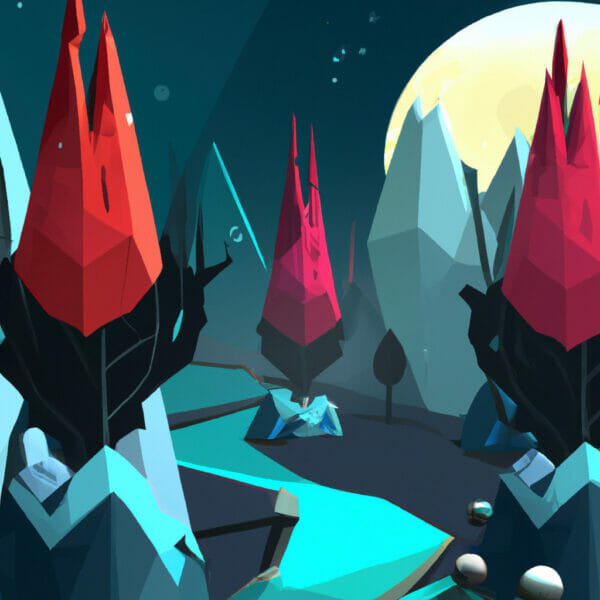Welcome to this exciting journey into the world of Roblox badges! Adding badges to your Roblox game not only spices up your game world but can be a great gameplay mechanic. So, what are these little tokens, and why should you pay attention to them?
Table of contents
What are Roblox Badges?
Roblox badges are awards given to players for accomplishing specific tasks or reaching certain milestones within a game. As a Roblox game developer, you can create custom badges to reward players and enhance their gaming experience.
Why should I learn about Roblox Badges?
Badges are multipurpose in-game tools. Apart from being an excellent way to mark a player’s achievements, badges also:
- Improve player engagement
- Help to lead gameplay in certain directions
- Function as virtual goods, adding another potential revenue stream
Having a grasp on this Roblox feature can help make your games feel more polished and professional.
What are Roblox Badges used for?
Badges are typically used to recognize a player’s milestones, achievements, or certain actions within a game. They can symbolize anything, from being a game’s long-time player, to passing a challenging level, to unlocking secret items or game sections. Essentially, Roblox badges function much like achievement systems in many other video games.
Creating Badges in Roblox
Badges can be created in the Roblox Developer portal. To do this:
Step 1: Navigate to the “Create” tab of the Roblox website and select the game you want to add a badge to.
Step 2: Under the settings, choose “Badges”.
Step 3: Click on “Create Badge”.
Step 4: Fill out the form with your badge’s details.
Scripting a Roblox Badge Reward
To script a badge reward, we use the AwardBadge function. Here’s a basic example of how you might script a badge reward when a player touches a particular part in your game:
local BadgeService = game:GetService("BadgeService")
local badgeId = 2124238594 -- replace with your actual badge ID
local function onTouch(otherPart)
local player = game.Players:GetPlayerFromCharacter(otherPart.Parent)
if player then
-- Check if the player doesn't already have the badge
if not BadgeService:UserHasBadgeAsync(player.UserId, badgeId) then
-- Award badge
BadgeService:AwardBadge(player.UserId, badgeId)
end
end
end
game.Workspace.SomePart.Touched:Connect(onTouch)This script would award the badge to any player who touches the game object called “SomePart”.
Scripting Multiple Badge Rewards
Here’s a more advanced example, showing how you might set up a system to give different badges for multiple achievements:
local BadgeService = game:GetService("BadgeService")
local badges = {
badge1 = 2124238594, -- replace with your actual badge IDs
badge2 = 5472589742,
badge3 = 9847529384
}
local function awardBadge(player, badgeId)
-- Check if the player doesn't already have the badge
if not BadgeService:UserHasBadgeAsync(player.UserId, badgeId) then
-- Award badge
BadgeService:AwardBadge(player.UserId, badgeId)
end
end
game.Workspace.SomePart1.Touched:Connect(function(otherPart)
local player = game.Players:GetPlayerFromCharacter(otherPart.Parent)
if player then awardBadge(player, badges.badge1) end
end)
game.Workspace.SomePart2.Touched:Connect(function(otherPart)
local player = game.Players:GetPlayerFromCharacter(otherPart.Parent)
if player then awardBadge(player, badges.badge2) end
end)
game.Workspace.SomePart3.Touched:Connect(function(otherPart)
local player = game.Players:GetPlayerFromCharacter(otherPart.Parent)
if player then awardBadge(player, badges.badge3) end
end)This script allows for multiple badges to be given to players for touching different parts in your game, provided they don’t already own the corresponding badge.
Creating Collection of Badges
In some games, having a collection of badges that players can earn can add depth and might indicate a certain level of prestige. Check out the following script:
local BadgeService = game:GetService("BadgeService")
local badges = {
bronze = 2124238594, -- replace with your actual badge IDs
silver = 5472589742,
gold = 9847529384,
}
local function awardBadge(player, badgeId)
-- Check if the player doesn't already have the badge
if not BadgeService:UserHasBadgeAsync(player.UserId, badgeId) then
-- Award badge
BadgeService:AwardBadge(player.UserId, badgeId)
end
end
local function onTouch(otherPart)
local player = game.Players:GetPlayerFromCharacter(otherPart.Parent)
if player then
if otherPart.Name == "BronzePart" then
awardBadge(player, badges.bronze)
elseif otherPart.Name == "SilverPart" then
awardBadge(player, badges.silver)
elseif otherPart.Name == "GoldPart" then
awardBadge(player, badges.gold)
end
end
end
game.Workspace.BronzePart.Touched:Connect(onTouch)
game.Workspace.SilverPart.Touched:Connect(onTouch)
game.Workspace.GoldPart.Touched:Connect(onTouch)The player will be awarded a different badge based on which part they touch, creating a sort of “collection” of possible badge rewards.
Awarding Badges on Game Entry
For instance, we could give badges to players just for joining our game:
local BadgeService = game:GetService("BadgeService")
local firstTimeJoinBadge = 2124238594 -- replace with your actual badge ID
game.Players.PlayerAdded:Connect(function(player)
-- Check if the player doesn't already have the badge
if not BadgeService:UserHasBadgeAsync(player.UserId, firstTimeJoinBadge) then
-- Award badge
BadgeService:AwardBadge(player.UserId, firstTimeJoinBadge)
end
end)This script awards a badge to any player upon joining the game for the first time.
Showing Owned Badges
Sometimes, we might want a way to see which badges a player has earned in our game. We can do this by checking each individual badge:
local BadgeService = game:GetService("BadgeService")
local badges = {
bronze = 2124238594, -- replace with your actual badge IDs
silver = 5472589742,
gold = 9847529384,
}
local function getBadgeOwnership(player)
local ownership = {}
for badgeName, badgeId in pairs(badges) do
if BadgeService:UserHasBadgeAsync(player.UserId, badgeId) then
table.insert(ownership, badgeName)
end
end
return ownership
end
game.Players.PlayerAdded:Connect(function(player)
print(player.Name .. " owns the following badges:")
for _, badge in ipairs(getBadgeOwnership(player)) do
print(badge)
end
end)This example will print out a list of the badges each player owns when they join the game. This can be fantastic for monitoring player progress.
Conclusion
As we’ve seen, Roblox badges allow game developers to add additional layers of accomplishment and fun to their games, and there are many creative ways you can apply them. Understanding how to integrate badges to your games can create a more engaging experience for your players.
Badges as Special Prizes
Badges can be also awarded for unique achievements or moments of brilliance in your game. Suppose there was a particularly hard puzzle or a secret room that only the most dedicated players could figure out how to access. To honor their effort, you can offer them a special badge:
local BadgeService = game:GetService("BadgeService")
local secretRoomBadge = 2124238594 -- replace with your actual badge ID
local function onTouchSecretRoom(otherPart)
local player = game.Players:GetPlayerFromCharacter(otherPart.Parent)
if player and not BadgeService:UserHasBadgeAsync(player.UserId, secretRoomBadge) then
BadgeService:AwardBadge(player.UserId, secretRoomBadge)
end
end
game.Workspace.SecretRoom.Touched:Connect(onTouchSecretRoom)The script above awards the badge to any player who manages to enter the secret room.
Badges as Skills Descriptors
Badges can even serve as an indication of a player’s specific skill sets. For instance, you can assign badges to players who show superior abilities in a certain aspect of your game, further individualizing the player experience. In a puzzle game, a “Master Solver” badge could be awarded to players who consistently solve puzzles:
local BadgeService = game:GetService("BadgeService")
local masterSolverBadge = 2124238594 -- replace with your actual badge ID
-- function called whenever a player solves a puzzle
local function onPuzzleSolved(player)
if player then
local solvedPuzzles = player:WaitForChild("SolvedPuzzles").Value
if solvedPuzzles >= 5 and not BadgeService:UserHasBadgeAsync(player.UserId, masterSolverBadge) then
BadgeService:AwardBadge(player.UserId, masterSolverBadge)
end
end
end
game.ReplicatedStorage.PuzzleSolved.OnServerEvent:Connect(onPuzzleSolved)This script awards a “Master Solver” badge to players who have solved at least five puzzles.
Awarding badges based on time-played
Creating badges for different thresholds of time played in your game can also be a great incentive for players to invest more time:
local BadgeService = game:GetService("BadgeService")
local veteranBadge = 2124238594 -- replace with your actual badge ID
game.Players.PlayerAdded:Connect(function(player)
local timePlayed = player:WaitForChild("TimePlayed").Value
if timePlayed >= (60 * 60 * 10) and not BadgeService:UserHasBadgeAsync(player.UserId, veteranBadge) then
BadgeService:AwardBadge(player.UserId, veteranBadge)
end
end)This script provides a “Veteran” badge to any player who has played your game for at least 10 hours.
Check for Multiple Badge Ownership
If you want to determine if a user has been awarded a certain set of badges, you can set up a script like this:
local BadgeService = game:GetService("BadgeService")
local badges = {
badge1 = 2124238594, -- replace with your actual badge IDs
badge2 = 5472589742,
badge3 = 9847529384
}
local function checkAllBadges(player)
for _, badgeId in pairs(badges) do
if not BadgeService:UserHasBadgeAsync(player.UserId, badgeId) then
return false
end
end
return true
end
game.Players.PlayerAdded:Connect(function(player)
if checkAllBadges(player) then
print(player.Name .. " has all the badges!")
else
print(player.Name .. " is missing some badges.")
end
end)The function checkAllBadges checks if a player has all the specified badges and returns true if they do, or false otherwise.
Conclusion
By crafting intelligent badge award systems, we can considerably boost player motivation and the overall player experience. It’s important to remember that badges are meant to be a rewarding element of gaming; use them to shape your players’ progress and make them feel fulfilled. Start adding robust, fun, and rewarding badge systems to your Roblox game today!
Where to Go Next?
Woah, that’s a lot to digest! Congratulations on making it this far. But remember, the journey to mastering Roblox game development does not stop here.
Our Roblox Game Development Mini-Degree could be the perfect next step for you. This comprehensive collection of courses dives deeper into the world of game creation using Roblox Studio and Lua, touching on genres like obstacle courses, melee combat games, and FPS games. This Mini-Degree teaches skills such as multiplayer functionality and leaderboards, making it an excellent resource for both beginners and experienced developers alike.
Also, you might want to explore our broader collection of online Roblox courses. Remember, with Zenva, you can go from beginner to professional. So, keep coding, keep learning, and importantly, keep having fun!
Conclusion
We hope you enjoyed this thorough guide on badges in Roblox! We at Zenva believe in nurturing the talents of game developers, and it’s amazing to see what you’ll be able to accomplish with these new skills. Remember: badges are powerful tools to enhance your game by increasing player engagement and adding an extra layer of fun and accomplishment.
Now that you have learned about badges, your journey has just begun! Interested in diving deeper in Roblox game development? We invite you to take a look at Zenva’s Roblox Game Development Mini-Degree. Enjoy your creative journey and happy coding!
Did you come across any errors in this tutorial? Please let us know by completing this form and we’ll look into it!

FINAL DAYS: Unlock coding courses in Unity, Godot, Unreal, Python and more.







